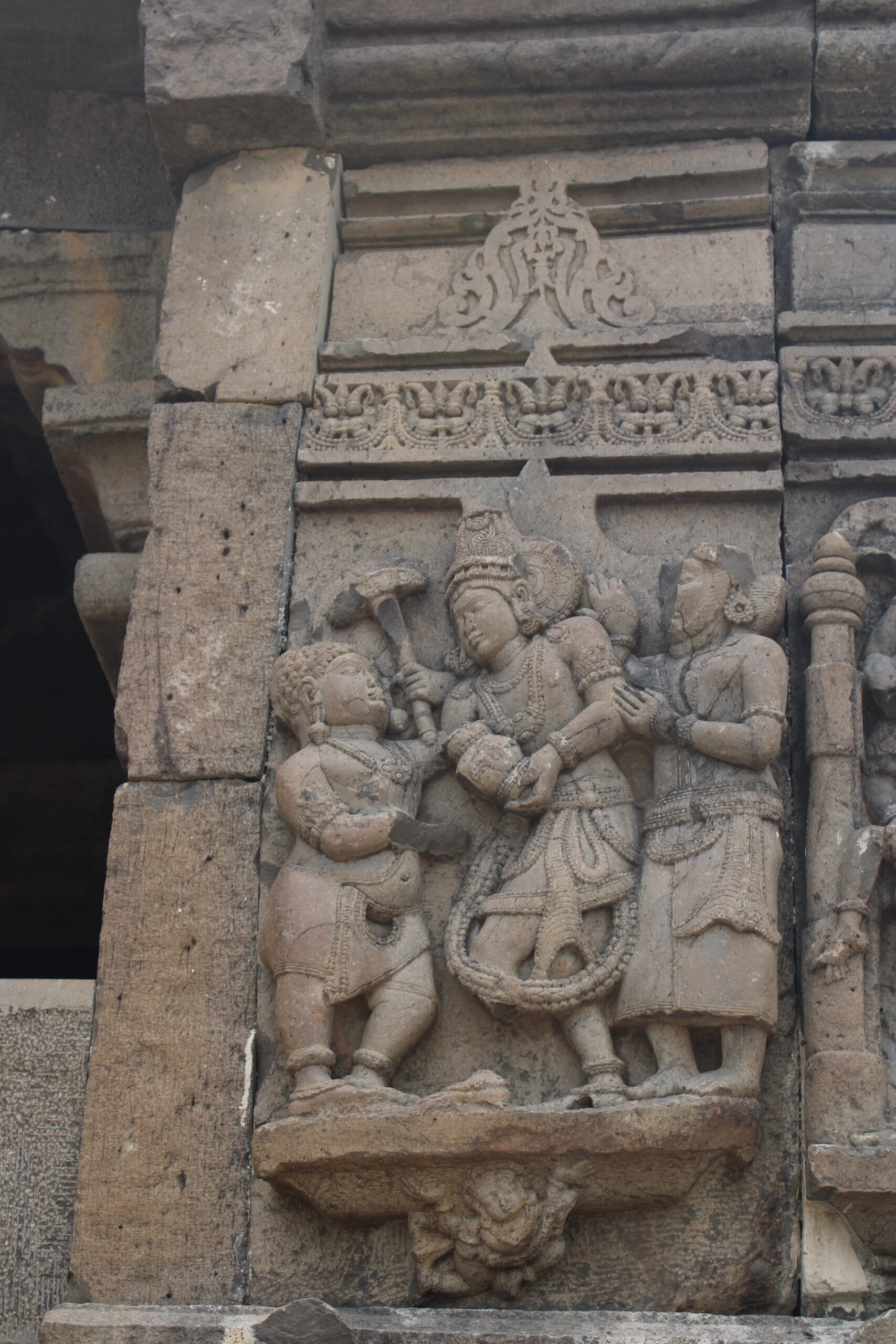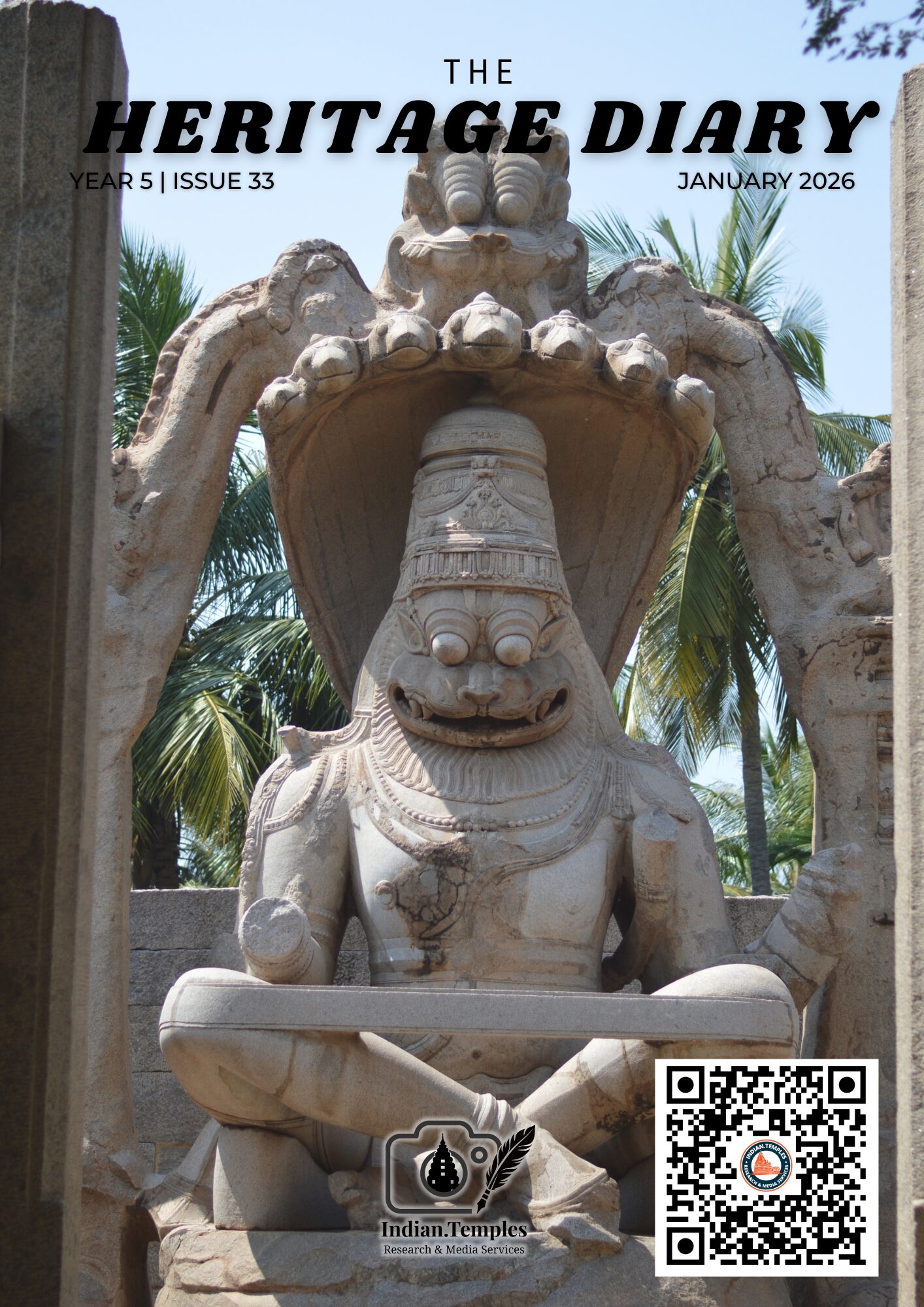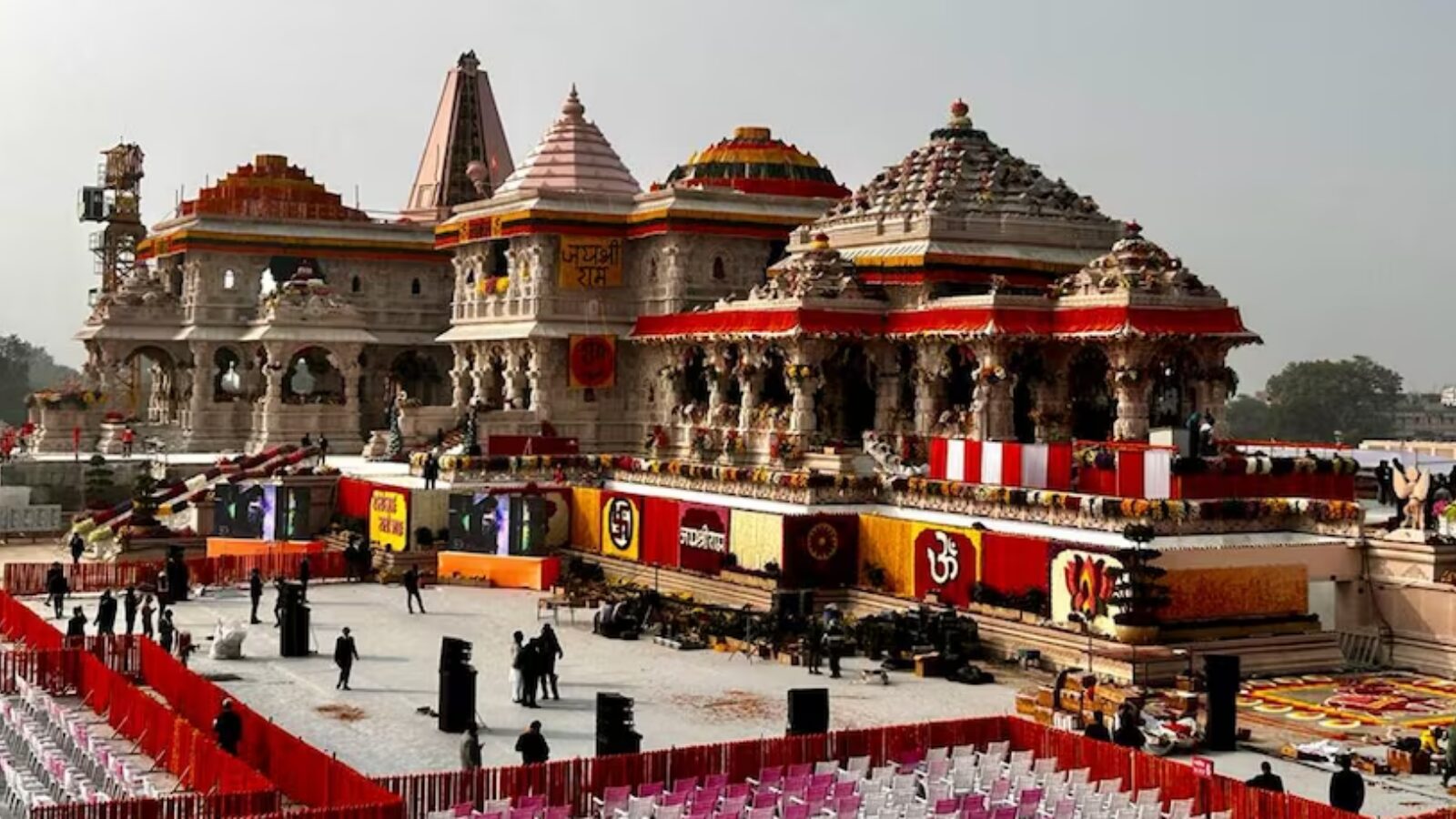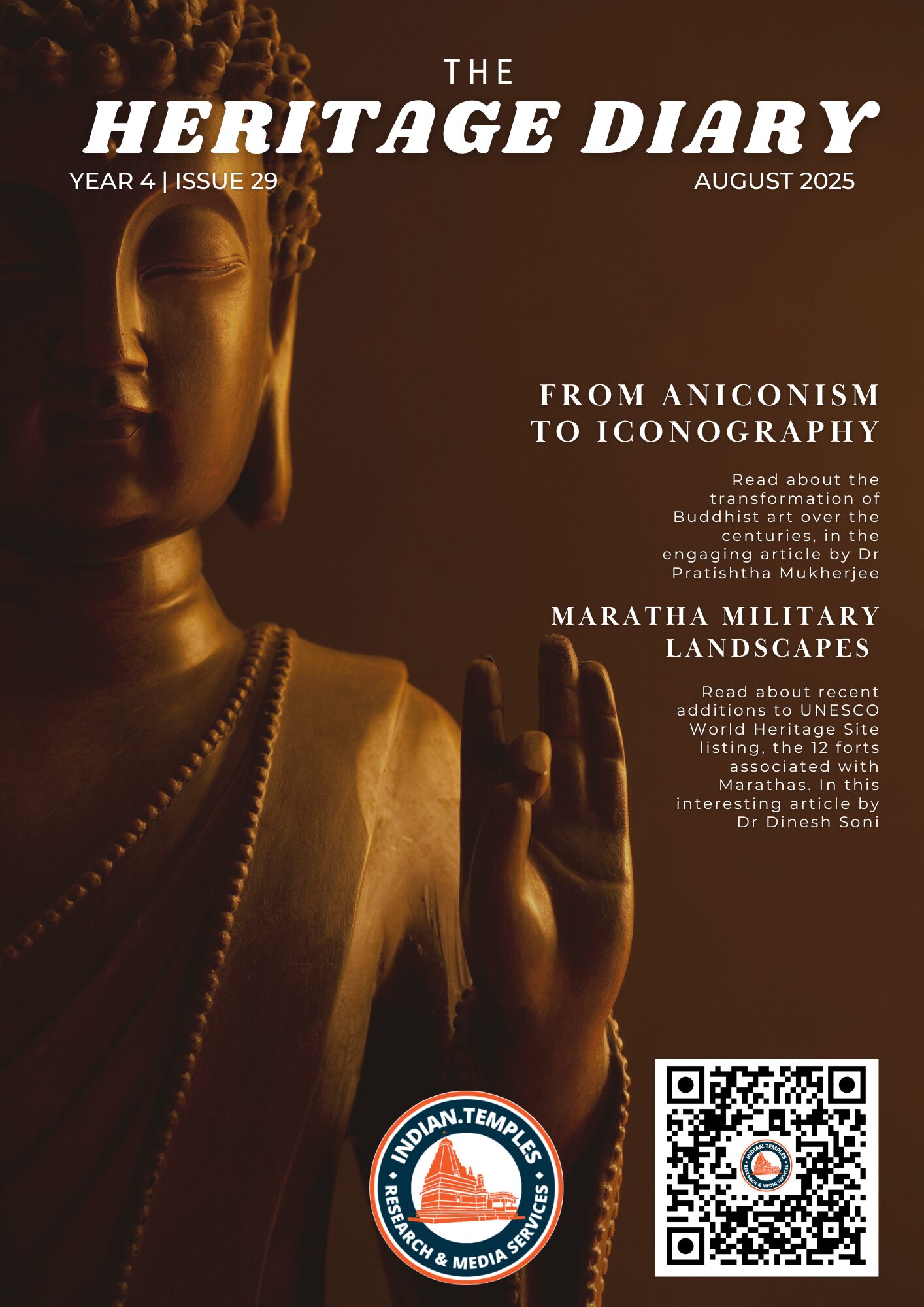Many epics and Purans tell story of Mahabali, one of the greatest kings the earth has seen. He is the grandson of Pralhada and descendent of sage Kashyapa. Mahabali is considered to be the noblest and most prosperous ruler, who transformed his kingdom into a heavenly place. His legend is a major part of the annual festival Onam in the state of Kerala, and Mahabali is celebrated in Maharashtra, Karnataka, Gujarat, Telangana, Andhra Pradesh as Balipratipada, Balipadyami or Bali padwa (the third day of Deepavali and first day of Kartika month). He was such a great leader than even Indra got jealous of her and seeked Vishnu’s help to finish him.
Vishnu incarnated as the dwarf Brahmin avatar, Vamana. While Mahabali was performing the ashvamedha sacrifice to celebrate his victories and giving away gifts to everyone, Vamana approached him and requested “three steps of land”. Mahabali granted him this gift, despite warnings from Shukra, who had realised Vamana’s true identity. Vamana then metamorphosed into Vishnu’s colossal trivikrama form, the first foot encompassing all of heaven in one step and the earth with the second foot. When rhetorically asked where he might take his promised third step, Mahabali accepted his fate and offered his own head. Some Hindu texts state that Mahabali was banished to patala (netherworld), some state he was dragged there by Garuda, in others he entered heaven with the touch of Vishnu, while another version states he became Chiranjivi (immortal). Others even have Bali admitted into Vaikunta, which was an even higher place than the realm of the devas.
We come across another story in Mahabharata where Indra appeared in front of Karna, dressed as a Brahmin. Indra, being Arjuna’s father, was worried for the outcome of the Kurukshetra war. He knew that Karna is invincible with the golden armour he was born with. So Indra takes benefit of Karna’s generous nature. And similarly Vishnu takes advantage of the generous nature of Mahabali, and takes over his kingdom. No wonder we now feel very cautious while donating any money. And as a result, the government had to make it mandatory to give back to society. The Companies Act, 2013 provides for CSR under section 135. Thus, it is mandatory for the companies covered under section 135 to comply with the CSR provisions in India. Companies are required to spend a minimum of 2% of their net profit over the preceding three years as CSR. In this article, let’s talk about donations.
What exactly is a donation?
Dāna is a Sanskrit and Pali word that connotes the virtue of generosity, charity or giving of alms, in Indian religions and philosophies. Dana, in financial terms, is act of giving something to someone in need. In religious context, it is simply the act of giving. There are three contexts in which the financial giving would be considered. Paropakara (परोपकार) which means benevolent deed, helping others; Dakshina (दक्षिणा) which means fee one can afford; and Bhiksha (भिक्षा), which means alms. Beyond Dana, there is also one concept of Utsarga. Dana is usually given to one person or family or organisation. But Utsarg is act of giving something for greater good of the society at large. The activities like building a rest house, school, water tank, planting trees are some examples of Utsarg. The act of giving in CSR falls mostly under this Utsarg part.
How should act of giving be?
There is a folklore told that illustrates Karna’s generosity level. Once, while Krishna and Arujna were riding on a chariot in forests, Arjuna asked Krishan “Why do people praise Karna so much? We all do charity; we all give to the poor. What is special about him?” Krishna said, “I won’t answer you. I will demonstrate you.” Krishna, with his magical powers, converted a hillock into gold. And he asked Arjuna to donate this gold among the villagers. Arjuna sent his assistant in the village and said “Arjuna is giving Gold to all people. Come and collect”. All villagers reached there with pots and bags. Arjuna started to dig out gold from hill and giving to everyone who came to him. The day turned into night and night turned into day. This went on for three days but the gold did not finish. Arjuna finally left the work midway, feeling super tired.
Then Krishna moved on to another village and again turned a hillock into gold. This time he invited Karna to distribute the gold among villages. Karna goes to the head of the village and tells him “There is a pile of gold on a hillock outside the village. That is all yours to be distributed among yourselves.” He bows to Krishna and just walks away.
Krishna then turns to Arjuna and says “Arjuna, in your mind, Gold held high value. So you wanted to yourself decide who gets show much. You had a feeling of being superior than the receives, because you were the one who were in control. For Karna, the gold meant nothing. For him, the act of giving was more important than the superiority. He made sure that the receivers don’t feel any inferior to anyone else. That’s what makes Karna the greatest giver yet.”
Our ancient texts are full of tales of some of the most generous ones. And those sometimes consists of some incidents that may seem unrealistic in today’s times. Karna had a very unfortunate life despite being so generous all through his life. In the end, he even gave away the golden armour, leaving himself vulnerable. We see tale of Harishchnadra, who had a dream where he gave his kingdom to Vishvamitra. And to honor the dream, he gives away his kingdom in reality. He even sells his wife, son and himself so that he can pay enough alms to Vishvamitra. Despite being so generous and truthful, he lives a life of poverty. Mahabali, despite giving all kingdom to Vamana, had to leave earth. Here, we need to understand difference between Bhiksha and Dana. Dana is when you give something, without expecting anything in return. Bhiksha is when you receive merit points (Punya) in return. The merit points are used to improve your life.
Today, when the government asks corporates to do CSR, the corporates are not expected to be selfless like Karna or Harishchandra. CSR is also not Bhiksha, something they would give to receive merit points. CSR is like Dakshina, repayment of services. In past, the Priests, poets and Gurus used to receive Dakshina from the king. As a repayment for the services, they offered to the king. Today, the corporates earn on behest of the society. The society helps companies in doing business and earning profits. The help by the society needs to be repaid in some way. And CSR is a good way to do that.
How much should one give?

One very important question that one may ask. How much should one be giving? How much is enough to satisfy the hunger? Mahabali was a great and generous king. He said “I will please everyone who would come to my door. I will satisfy everyone’s hunger”. Vishnu taught him a lesson that “Hunger is unlimited. You will lose yourself if you try to satisfy all the hunger”. We see same narration when Manu wanted to safeguard the fish. The fish kept outgrowing, and Manu always needed a bigger pot for the fish. Manu wanted to satisfy the fish’s hunger for safety. But Manu could not satisfy it.
So does it mean we can never satisfy hunger of the world, no matter how much we donate? Yes. But when everyone of us just takes one step ahead, combined it would be millions of steps forward. How much one should give is of course an individual choice. The government says 3% of net income, but why should we stop there?
Varuna, the god of oceans and water, gave his daughter Lakshmi to Vishnu; in order to satisfy requirements of the world. Varuna, as the ocean, keeps giving the water in form of vaporisation. The vapours form clouds and the clouds give us rains. The water from rains come back to the ocean from rivers. No matter how much the ocean gives, it all comes back to it. And the stock with the ocean never reduces. If the ocean does not give, it may seem like it saved some water, but the input of water will stop. Our finances are the same. No matter how much you give, it will come back to you. But if you don’t give, the input also stops.
My words of advice: Give how much you feel like giving. But always remember, if you don’t give, you won’t receive. There is a folklore in villages of Rajasthan.
After the Kurukshetra war and Yudhishthira sat on throne, once a poor brahmana came to Yudhishthira’s palace. He requested financial help to run his gurukul. Yudhishthira enquired about the gurukul and was satisfied with the way it functioned. He said “Please come tomorrow morning. I will oblige you with the financial help you are seeking.” The Brahmana left the palace. On the way out, he came across Bhima. When Bhima enquired, he narrated all the happened in the palace.
After a few minutes, Yudhishthira heard sound of Dhols and conch. The way it is typically played after a king returns home, victorious in war. Yudhishthira got confused and he asked his assistant to check the reason. The assistant said that Bhima has ordered musicians to play this. He called for Bhima. Bhima came to Yudhishthira’s chamber and bowed. Yudhishthira asked Bhima why he is playing this victory music. Bhima said “I got to know that you have won the big war. The war with death.” Yudhishthira got confused. He asked Bhima for details. Bhima said “You asked the Brahmana to come back tomorrow morning. So, you surely know you are going to live till tomorrow morning. Isn’t that a victory?”
Yudhishthira realised his mistake. He sent a messenger to invite the old Brahmana. When the Brahmana arrived, Yudhishthira immediately gave him the financial assistance he was seeking. The moral of the story is simple. If you like a particular activity, make sure you don’t hesitate to assist it. You don’t have to wait for the right moment. Cause there is no better moment than now.
Donations : Who should receive?

Earlier in this article, we talked about the Manu and Fish; the story of Vishnu’s first incarnation as Matsya. When Manu found the fish, it was very small and could fit in the palms of Manu. When Manu kept him in a pot and started to feed him, the fish started to grow. And the fish outgrew every single pot Manu tried to keep him in. When Manu left the fist in the pond, it outgrew the pond. It was then transferred to river and finally to the sea. We humans are like the fish. When we have a Manu to feed us, we won’t go out and look for our own food. And no matter how much we are fed by the Manu, we won’t stop being hungry. Humans are the only animal who would not stop collecting food, even after hunger is satisfied. We collect for future hunger too. And that is what keeps us hungry for lifetime.
When one is donating to a charity, one must understand this story. You don’t have to become Manu for someone. You should not make the receiver dependent on you. In fact, the correct charity is one where you make the receiver independent. There is a famous proverb “Give a man a fish, and he will eat for one day. Teach a man how to fish, and he will eat every day.”
Ancient texts have clearly defined how a Dana should be. The mentions go as back as Rigveda. Rigveda’s Sukta no 117 talks about donations. It says “The gods have not assigned hunger as (the cause of) death, for deaths approach also the man who has eaten. But the ones who give food to the hungry one does not diminish. But the one who just holds on to food finds no consoler. The true liberated is the one who gives to those in need.” Bhagavadgita (17.20 to 17.22) describes about what is the right form of donation. It says “Charity given to a worthy person simply because it is right to give, without consideration of anything in return, at the proper time and in the proper place, is stated to be in the mode of goodness. But charity given with reluctance, with the hope of a return or in expectation of a reward, is said to be in the mode of passion. And that charity, which is given at the wrong place and wrong time to unworthy persons, without showing respect, or with contempt, is held to be of the nature of nescience.” The Adi parva of Mahabharata says “Before giving, one must first acquire wealth by honest means. The charity is of no use, if the wealth isn’t acquired by honest means.”

While the earlier texts only talk about importance of giving, the later texts are more explicit about whom to give and how to earn the money that is being given. Today, when we consider CSR, we have to understand who are getting benefited from the charity. One must identify the right beneficiary for the project. And mor importantly, one must give without expecting anything in return. Today, I see many companies transferring CSR fund to own trust; and then spend the money to own purposes. They don’t identify needs of the society and end up spending the CSR for their own benefits. These companies need to identify the real purpose of giving.
On the other side, the social organisation who seek the CSR funds for their projects; must understand the fact that no one is Karna or Harishchandra in today’s world. When you are receiving funding, you must have to make sure that the companies receive in return; what they are expecting. It maybe the name and fame; it maybe appropriate accounting and auditing; it may be participation in deciding beneficiaries. CSR funding is not Dana, but Dakshina. Given with expectation of something in return. And this something, is not the merit points in today’s age.
Can you donate in memory of your ancestors?
In other religions, you need to earn merit points while you are alive. But in Hinduism, one also gets benefited from the donations given by your children and grand children. When one dies, on his or her 12th day; all children and grandchildren take Sankalp to donate something of having some fast in the memory. The merit points from this act are said to reach the deceased. There is a story in Skanda Purana that explains the concept.
There was a king Vasusena who ruled over the country of Anartdesh. His whole life, his donated a large amount of money and grains to those in need. When he got old and was about to die, his son Satyasena was made the king.
Because of his good deeds throughout life, Indra himself came down on earth to take him to Swarga. When Vasusena was going in Indra’s chariot, his throat started to become dry. He asked Indra reason for this phenomenon. Indra told “You have donated all through your life. But you never gave water to anybody.” Vasusena asked for a solution to Indra. Indra explained him how his son can donate water with Vasusena’s name and the merit points with reach Vasusena. Vasusena appeared in dreams of Satyasena and asked him to do so. When Satyasena dug out a lake for citizen, thereby providing them water, Vasusena’s thirst was also quenched.
Hinduism always has promoted the act of Charity. Maybe such stories are just for providing additional motivation to donate in the memory of deceased…!!!






